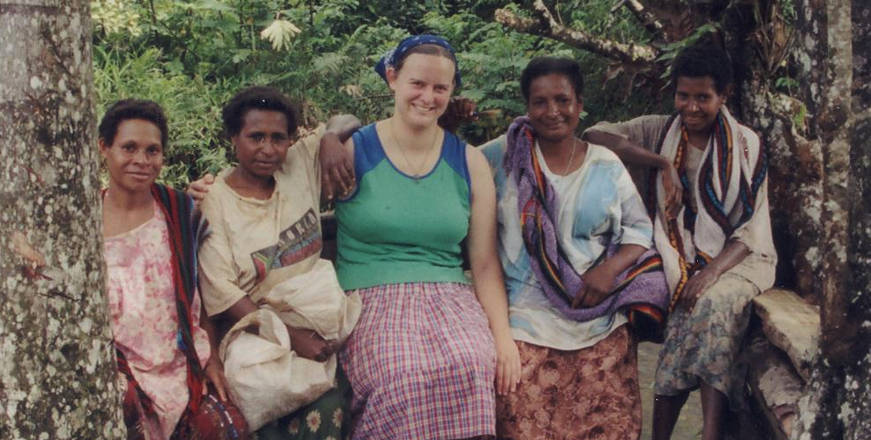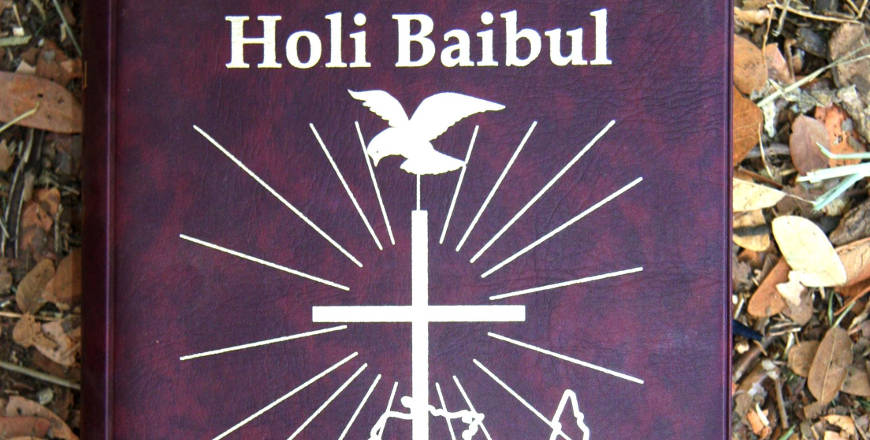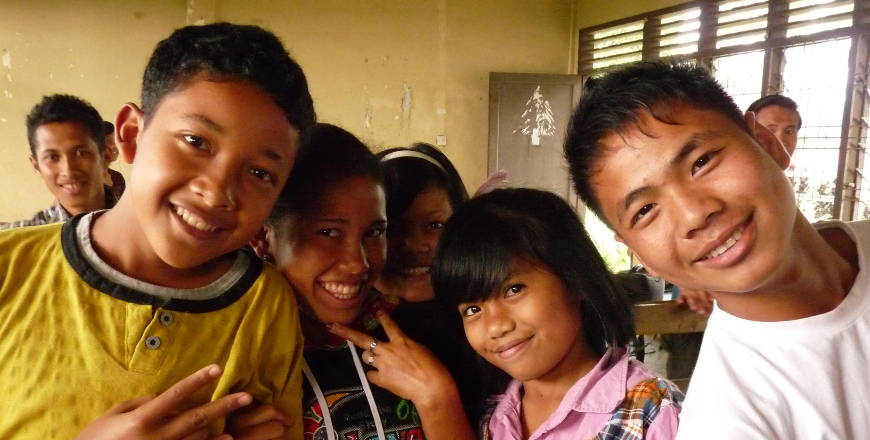Sails, Symbols, Synonyms
It’s a clear, warm day as Hanna Schulz and I walk towards the coffee shop. ‘Perfect sailing weather’, Hanna says exuberantly. ‘I’m an ocean person.’
Perhaps it is natural, then, that Hanna is a mate on the One and All, a vessel that offers five-to-seven-day sailing experiences for young people, often from troubled backgrounds.
‘I love sailing’, Hanna exults. ‘There is something deeply spiritual about being on the water. Out on the ocean you’re constantly reminded that God has no limits.
‘I love taking teenagers to sea and teaching them about life…seeing them grow up, giving them responsibility, seeing them thrive, watching them step off the boat a foot taller than when they got on because they are so much more confident. I love it!’
Hanna was born in Ballarat and grew up in Perth and Naracoorte, where she attended public secondary schools.
‘I didn’t know what I wanted to do after school, so I started an Arts degree at the University of Adelaide and ended up doing a Bachelor of Social Sciences and a Diploma of Language in Italian.’
Why Italian?
‘I just wanted to learn a language for the sake of it, and I’d enjoyed Italian in primary school. I was fluent for a while but I’ve lost some of those skills because I don’t get to speak the language every day.’
The idea of becoming a Bible translator was planted through an event called ‘The Journey’, which gives people an opportunity to understand what translation work is like.
‘I always loved linguistics but didn’t really think seriously about translating. Then, in 2002, I went to Papua New Guinea for two months to do work experience with a translator. I got to sit in on sessions with the translation team. During the afternoons I did a lot of the typing of the morning’s work.
‘I was there for the dedication of the Gospel of Mark. At the end of each verse, the local evangelist would pause in astonishment at the fact that he was reading from the Bible in his own language. Then everyone would cheer. The faces of the congregation were shining because they could understand what was being read. Until now the readings had been in pidgin and then explained in a long-winded sermon.
‘We sold out of Bibles that day and people were sitting around reading them – especially the women and children who didn’t really speak pidgin.’
Hanna explained that it’s easier for people to become literate if they can use their ‘heart language’.
‘So Bible translation work is a community development thing as well.’
Wycliffe Bible Translators and Lutheran Bible Translators Australia (LBTA) engage local literacy workers to help this development in the communities.
‘These types of programs mean that literacy is not restricted to people who are able to go away to school’, Hanna explains. ‘Making the Scriptures accessible makes so much more of life accessible as well.
‘I came back from Papua New Guinea knowing that this is what I wanted to do with my life, but I knew I wasn’t ready yet: I needed more training.’
Hanna came home and finished her degree, then added an Honours degree in Anthropology. But not content to stay put, she embarked on a seven-month journey overseas, beginning with one month in India visiting her sister. From there she travelled to England and then on to mainland Europe. She stopped in France to stay with the Taizé community for a week.
‘This was the absolute highlight of my whole seven months away: the people I met and the feel of the place, the conversations and the prayer, thousands of young people living life around the daily rhythm of prayer and work.
‘Later I went back to do “a week in silence”. It was crazy because there were just six women doing this in the midst of thousands of people living in tents. The soccer World Cup was happening at the time, and we would hear great shouts of happiness or desperation coming from the other tents.’
Hanna cracks up laughing as she recalls her two months living in Italy with families on organic farms, including two weeks herding goats in the Apennine Mountains.
‘It was certainly full immersion in the language. One farmer tried to explain in Italian the principles of biodynamic farming and was so frustrated that I didn’t understand!’
As if all that wasn’t enough adventure, Hanna joined the Tall Ships Race, in which she sailed on a Welsh yacht from France to Portugal, and then from southern Spain to Antwerp with a Danish ketch. Finally, she came home, ready to start her translation training in earnest.
‘While I was away, I really started thinking about Christian community and what that means. I also knew that one of the most important things I needed to do to prepare myself for working as a Bible translator would be to get a better knowledge of theology. So I explored intentional Christian community with a bunch of friends in the western suburbs (of Adelaide) and also enrolled in a theology degree at Australian Lutheran College.
‘The “Sem” has been so good to me, allowing me to cross-credit subjects, and they were so flexible regarding my silly sailing schedule.’
Hanna’s eyes shine as she tells me about the last part of her training: a pre-field training course called Equip, run just outside of Melbourne, starting January next year. After that she hopes to be in the field.
‘One of the things we will learn at Equip is how to learn a language in the field with no written resources. Often, Bible translators have to develop a written version of the language if none currently exists. It is very involved. We have to develop an alphabet and style that is complementary to the language. Some languages have very strange sounds, so they might require extra letters.’
So where will this bright, bubbly sailor go to begin her life’s work?
‘My mentors told me that the Solomon Islands have a lot of work happening with Wycliffe, or perhaps in Bougainville. Or maybe Vanuatu. There are lots of Christians there with a great need for a Bible of their own.
‘Hearing God speak your own language makes a big difference. It allows Scripture to become real, memorable and accessible in people’s lives.
‘I’m really excited about what I am doing. This is what I want to do.
‘We have the resources and they have the need over there, so we’ll be working together with people for something that they really want.
‘And they’re islanders…they like boats!’
If you would like to consider the opportunity to donate to Hanna Schulz, who is serving as a linguist and translation advisor in Papua New Guinea, you are invited to go to https://wycliffe.org.au/member/hanna/
For more information about Hanna Schulz, go to http://www.lcamission.org.au/about-us/who-we-are/countries/papua-new-guinea/papua-new-guinea-hanna-schulz/




